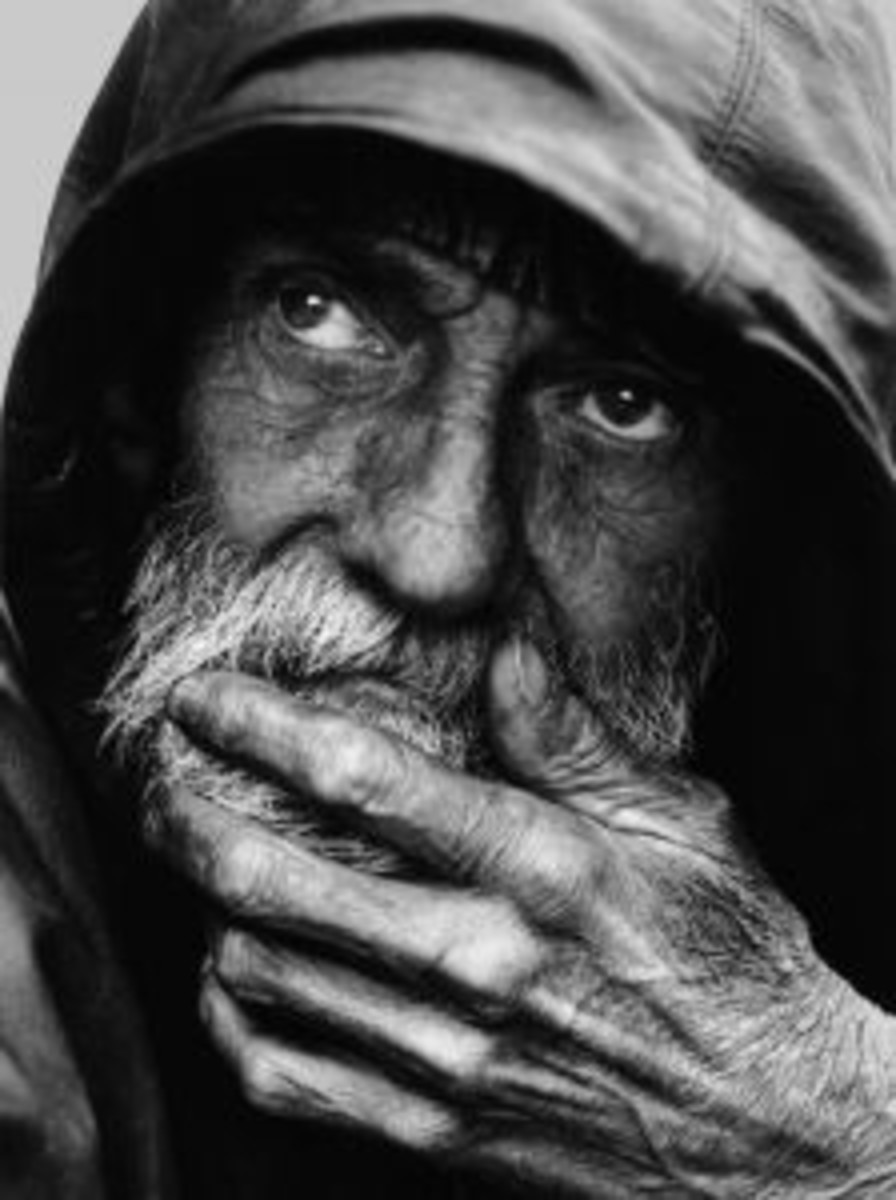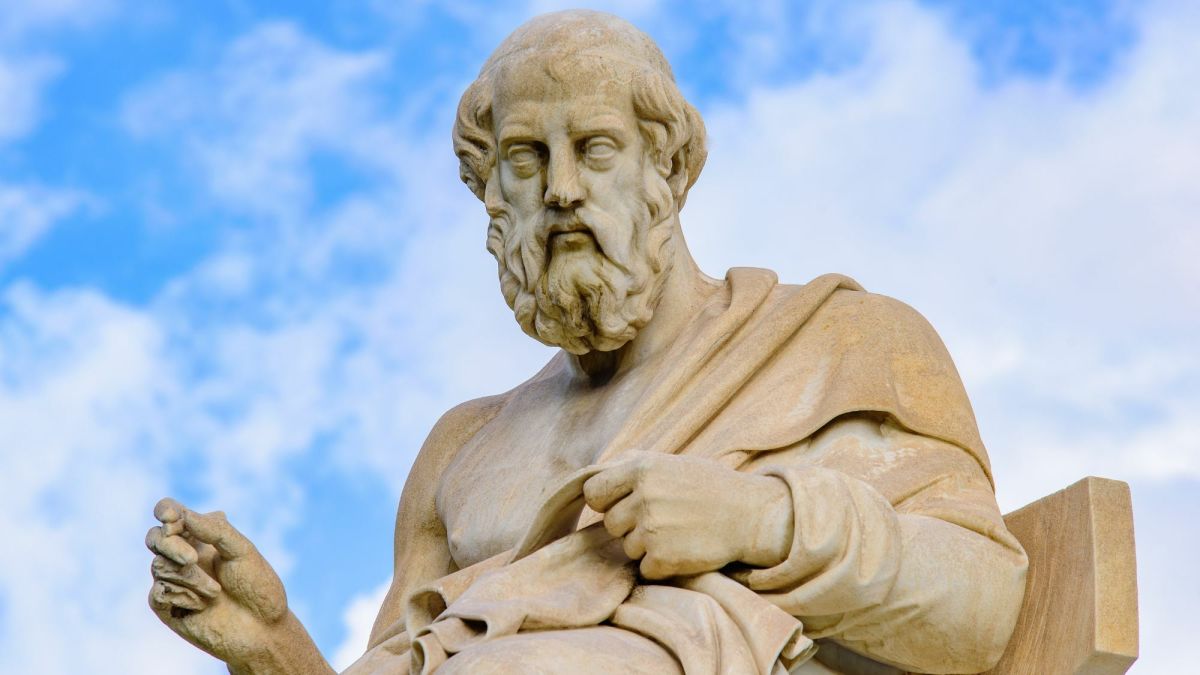The Human Condition Paradox- Looking at Deviance
The Way Things Are...
We are a society with paradoxes that are weaved throughout our thought process that we write off as "the way things are" or "simply unanswerable". I beg to differ. I think that through studying these questions without answer, amazing truths are to be discovered. Whether it is as humourous as the answer to "What came first, the chicken or the egg?" Or as important as to the "What happened to the other dollar?" paradox. The answer to the prior being obviously the egg, because dinosaurs and fish were laying eggs long before chickens where. Or, the answer to the latter, being the question is asked incorrectly. The answer to that only brings about the realization that the question should be, "What came first, the chicken or the chicken egg?" and with that question its obvious that the chicken came first. If evolution is true, then chickens didn't originally come from chicken eggs. They came from some other kind of egg, and came out chickens instead. If creationism is true, then the chicken still came first. The root question to the chicken or the egg debate is, "Do you believe in evolution or creation?" It's important to understand how understanding these concepts of logic, and discovering root questions, can have vast impacts on our intellectual ability. One social paradox we deal with in sociology is that of deviance. On a macro level, it's easy to say what is deviant, but by its very nature, you must start at the micro level and work your way up. One of the best places to start with this is the interpretation of authority, and how we use it
Authority
Wrongdoers have an inate fear of authority, because they know what they do is wrong. They know that it is authority that will persue and punish them for their transgressions. Luckily for authority, that wrongdoers are normally chaotic, and don't spend much time figuring out the limitations and boundaries that authority puts on itself. I had the chance to observe this first-hand when I witnessed a three car collision at 5:30 in the morning. I was on my way to work, and as a result, was wearing a security uniform. After checking on everyone, I talked to the individual I had seen cause the wreck. I noticed that his demeanor completely changed when dealing with me, he had previously been lying about what happened. When confronted by someone with an authoritative presence and demeanor, he was quick to stop and admit his wrongdoing. I concluded that he may or may not have thought me to be a police officer. I drive a white chevy, and it was far in front of us at the time, it could have been mistaken. I wear a badge, and while I did not explicitly say I was with police, I made no attempt to sway him from that impression if that was in fact the one he had made. It is my conclusion from this particular example, and others gained through life experience, that when we conduct a deviant behavior, our conditioning, as to what we consider normal, can easily be broken by the presence of authority. The man was prepared to lie and make excuses to exonerate himself if possible, but with a little push from his percieved authority figure, he was quickly brought back in line. This brings to light the inherant fluidity in deviance. That being we are only as deviant as we feel we can get away with. It's why laws change over the course of years. Women couldn't vote until the men in charge could no longer get away with it. England taxed the colonists without giving them a voice until they could no longer get away with it. Which is why no one ever feels like what they do is deviant, because if society lets you get away with it, it's not deviant.
Fluid Deviance
Because deviance is in fact very fluid, just as norms are. Our ideal society and actual society are extremely distant from one another. Sexual behavior of the Pokot of Kenya and Zapotec indians of Mexico are almost completely opposite of each other. We use the term cultural relativism when we approach these societies as a whole because we know the hopelessness of changing their beliefs to conform with our own. If we were to seriously consider this course of action, could we really determine that our own culture is supremely right? We respect those peoples way of life as it is because we can just ignore it. We do not have the same kind of patience when the couple next door is having issues with infidelity, or across the street where there is a divorce going on because of bedroom problems, in which she spits on him, and kills his dogs. These situations we call deviant because they happen next to us, but we call it different culture when it's across the ocean. It's all hypocritcal bullshit if you ask me. Ultimately people are only concerned with their own backyard, all the "save the planet" movement is a good sign of that. Humanity can barely take care of itself, and we are going to save the planet? What those people really want is a clean place to live. They are not over in the third world countries helping improve soil to promote plant life for cleaner air, they are picking up cans along the streets they drive down every day. So not only is deviance fluid, it's also based on proximity.

Self Esteem
Self esteem plays a big part in the self perpetuating problem. When I was in high school, I got sent to anger management. While there, I noticed a lot of my friends went as well. I asked them how it was working for them and the answer was unanimous, "Not at all". All of these people were beat down by the negative sanctions put on them. Nerd, ugly, unpopular, loser. These were all things that people associated with them. Without self esteem, they attributed to themselves that these things were true. They felt helpless because they couldn't change who they were, and society had deemed that their interest, actions, and humor were deserving of negative sanctions. The society in question was high school, so the reaction given to their behaviors made them deviant. I asked them to meet after school at my house one day. When everyone showed up, everyones name went into a hat. Two were drawn, and they fought one another in a controlled manner. I termed the activity "Violence Therapy". The pent up frustration they felt was purged, with that the anger subsided, and they saw the world with more clarity. With that clarity came confidence. They began to judge for themselves what was deviant, and found their negative sanctions to be unrightfully applied. By purely ignoring them, they caused the definition of what was deviant to this culture to change. These once social pariahs were dating (one dated the varsity cheerleader captain), bullying at the school sharply decreased, the main targets now fought back, and the new "main targets" had protection. This also served as built in recruitment for the therapy. People who went to the therapy were happier, we all got out of anger management, and grades went up. With elevated self esteem, came the ability to be themselves, and not just quiet for fear of rejection. As they became more comfortable with themselves, they became less dependent on the opinions of others to form their own. Something that was far reaching into the community, was with the acceptance of these people's activities, came a rise in sales of Dungeons and Dragons and other Wizards of the Coast products. They were in most stores for a while, and specialty gaming shops were opening in the area. Unfortunately, this kind of occurance rarely happens, it is not the rule but the exception, and as I see these shops close down, and the sections in local book stores getting smaller and smaller, I can only imagine that things have reverted back to how they were. The reversion is a important part of the sociological paradox surrounding deviance, and the human condition as a whole. The reversion itself is also a testament to the fluidity of deviance. For something to not be accepted, then to be accepted, then not again, shows that deviance by nature is extremely fluid. And by virtue of that fluidity, not factual in nature. Deviance is just a belief.
The Abilene Paradox
There is a wonderful sociological paradox by Jerry B. Harvey named "The Abilene Paradox." It is a social situation, in which a group of people collectively decide on a course of action that is counter to the preferences of any of the individuals in the group. Sounds crazy, but it happens. Ever think everyone's bored, so you suggest something you don't want to do, everyone agrees, and no one has fun, because no one really wanted to do it? It is my opinion that this happens on massive scales, all the time. As I see it, you can apply the sociological concept of a false consensus in one of our beliefs, and we would issue a positive or negative sanction accordingly. People who witness this will fall under the phenomenon of pluralistic ignorance and think even though they disagree, everyone else must agree, so they will go along, less they receive the same sanction as everyone else. Once they agree to go along with something that they disagree with, they will use one of the many methods for self justification, and realign their perception with what they view societies is. Lots of people will do this, and turn the false consensus into an actual one. This doesn't change the fact that originally it was a false consensus. What is truly disturbing, is the complexity of this is really hard to grasp. Because from the point you identify it, it continues on forward and backwards in history, for EVERY norm and law, religious custom, whatever that we have. Want proof that it happens? On a disastrous scale, this happened in Nazi Germany; and those people didn't just do for fear of authority, their perception was realigned. Also when we made concentration camps for the Japanese, Guantanamo Bay, Alexander the Great, racism and slavery in the America's; slavery in general, the hatred for gay marriage in America. We need to realize that our political system in America's very language dictates that nothing will get done. We have the left and the right; right gains an inch, the left gains two inches, and the right gains another inch, what has happened? 1-2+1=0. Nothing gets accomplished, we don't vote for politicians for their intellectual ability. Why? We don't know ourselves. Yet we feel we have the right to decide what's best for us when the majority of voters admit they don't really know what's going on. This carries over into almost all aspects of human life. I call it the human condition paradox. When this happens, anomolous things occur, some people will initiate conflict against the view and turn the tide, or are beaten down by the waves of societies wrath. It is because of this we cannot actually say what is deviant. We can never get an accurate poll on what people really think, what we mostly receive is their conditioning for fear of being different. The sampling changes from group to group, so inconsistancies will be everywhere. It's why we say we must practice cultural relitivism with people who live far away with different beliefs because we know that our beliefs are just as fake and indoctrined by fear of isolation as theirs are.
Education
So that's the paradox. We cannot really know what is or isn't right or wrong based off of how other people react to our actions. It is until we free ourselves of these fears, that we can really discover what is right and wrong. The only thing we can do is live our lives by nobody elses standards but our own. We will not be able to do that if we cannot educate our children and each other in the correct way. Education in America is based off of remembering dates, names, where events took place. We do not put enough importance of what happened and why. Think of it like this, what's more important, that the Declaration of Independence was written by Thomas Jefferson and signed on July 4th, 1776? Or is it more important that the Declaration of Independence was the document that broke America away from England during the American Revolutionary War, and was the result of many failed attempts of negotiation with the King of England? Now I ask, what do we put on history test? I think knowing why we did things in history is more important to keeping them from being repeated than who did them, and when. To avoid the mistakes of the past is the whole reason history is even taught as a subject. One that is considered by many students to be dull and boring, and no wonder why. It's just a bunch of names and dates to remember. In most schools, the critical thinking sections of the text books are widely skipped. We just go for the bolded or italicized text, try to remember the sentence before and after that, and do good on the test. Those grades are what give us positive sanctions, so why worry with the rest? The system isn't designed to teach children to think for themselves and come to conclusions through socratic questioning and a logical thought process. The system is designed to teach children to remember things in an optimized manner, so that they can regurgitate the correct response when asked. Teachers sometimes look disappointed when they ask, "Any questions?" and there never seem to be any. I wonder how many of them realize that the way they are teaching doesn't promote students to have to ask questions. I don't see it as the teachers fault, most of them are all part of the system, fish not noticing the water. Children not asking questions is a good thing! It means they explained everything in perfect clarity, and they are doing their job well, right? I remember many children in school thinking I was stupid because of all the questions I asked. What happens though is after 12 years of not being taught to ask questions, and making good grades off of memorization, your mind goes stale. That might be the wrong wording, because if children's young minds are to be compared to bread, it has not even properly risen when they first start school. But we will use stale for lack of a better phrase. This staleness in thinking is obviously very attractive to people in control. It's easy to get a populace to believe that what you're doing is right, when they do not know how to ask proper questions. Believing what they are told by authority figures is correct, just by merit of them being authority figures.
That's the danger in believing something. We are not taught that beliefs are different from facts. From politics, to science, philosophy, religion. People know everything if you ask them, and they are all right. Unfortunately, I think that will be our undoing.








